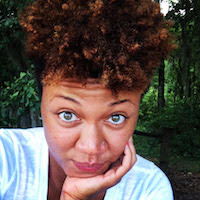To my professor who changed the way I view myself and altered the way I conceptualize others and the world around me.
In Brene Brown’s book Daring Greatly, she says that,
“You’re only as sick as your secrets.”
As I start to write this, I am inherently aware of all of my little “boxes.” These boxes hold my secrets and past traumas and are packed away, hidden in the deepest parts of my soul.
When I peek inside one of my boxes, the pain and anguish of it can be all-consuming, and I will quietly close the box and shove it further into the darkness and swear to never open it again.
For so long, I would walk around with a smile on my face and pretend that I’m not as f**ked up as I really am. As if shame and fear were not penetrating every aspect of my being.
My hidden secrets have prevented others from truly seeing me. I’ve always known that to be a great counselor and to do good work, I would have to open my boxes and be gentle with myself and my experiences.
However, that’s often easier said than done.
As I read Daring Greatly at the beginning of the summer 2014 semester, I was particularly impacted by her description of the “Culture of Scarcity,” which is feeling like you never have enough or are enough. This concept resonated with me.
Growing up, I was made to feel ashamed of many things. I was always too much or too little of something. I was always too chubby, too emotional, too quiet, too happy, too loud, too picky, too “fresh,” and too dependent.
Being a black woman, with a tendency to engage in same-sex sexual behavior, I was often made to feel like I was too much of everything but not enough of anything. Brene Brown stated in her book that,
“Childhood experiences of shame change who we are, how we think about ourselves, and our sense of self-worth.”
Shockingly, or maybe not shockingly considering the taboo nature of counseling in black culture, I never sought the help of a therapist. I was taught, growing up in a household that was strongly based on Christian principles, that if I had an existential crisis to consult my preacher or a bible.
However, as an adult and as my faith in religion and a higher deity begin to waver, I started to consider seeing someone so that I could address all of the pain and hurt I felt inside.
I can recall the exact moment that the emotional and mental pain I was experiencing became too much to bear, and I decided I needed to seek help.
After contemplating suicide, and debating whether or not my life was worth living, I received a text from a friend. A simple one, asking if I had dinner and if I was hungry. Her question was followed up with an “I love you,” and “How was your day?”
That simple display of concern and affection encouraged me to call my local crisis center and make an appointment to meet with a therapist the next day.
Through my therapy journey, I was forced to take a harder look at myself, slowly unpack my boxes of trauma, and sit in my pain.
Brene Brown stated in her book that,
“Only when we are brave enough to explore the darkness will we discover the infinite power of our light.”
Every time I took a risk to be vulnerable, I felt one step closer to freedom of my emotional bondage. Daring greatly over the course of that summer semester allowed me to be more comfortable in my own skin, to embrace my imperfections and to not be so afraid of my boxes.
Healing doesn’t mean that this part, or any other part, of your story will go away. It’s always going to be there.
I’ve come to realize that my story and all of what I perceive to be my imperfections will contribute to making me a better counselor.
A Shining Affliction reminded me that I have “a kind of giftedness that is inseparable from my suffering.” If I dare to be vulnerable and authentic with my clients, which could mean shining light in the dark corners of my story, then I’m more likely to create a connection and make an impact.
Thank you for reminding me that all of my shit allows me to be perfectly imperfect.
Thank you for providing a safe space for me to be exposed, to sit in my vulnerability, and lovingly cradle it afterwards.
Thank you for helping me to learn the difference between shame and guilt.
Thank you for showing me that it’s okay to be f**ked up, to have a trauma history and proving to me that despite all of that, I can still do good work and be an exemplary counselor.
I’m forever grateful for the reminder that I’m not alone, I’m not too much and that I am enough.
As I wrap up this letter to you, I can’t help but remember when Audre Lorde stated that,
“I have a duty to speak the truth as I see it and share not just my triumphs, not just the things that felt good, but the pain, the intense, often unmitigated pain. It is important to share how I know survival is survival and not just a walk through the rain.”
With love and admiration.
Relephant:
A Tough Love Letter to those Who Forget They are Magic.
Author: Alandria Mustafa
Apprentice Editor: Brandie Smith/Editor: Renée Picard
Photo: Courtesy of the Author.












Read 2 comments and reply